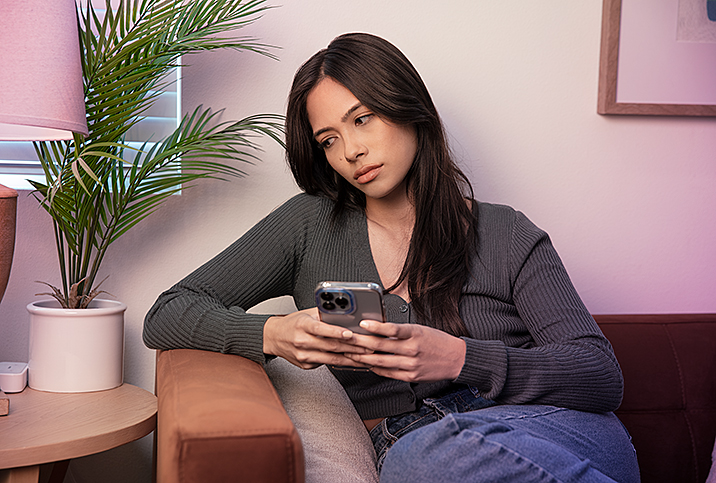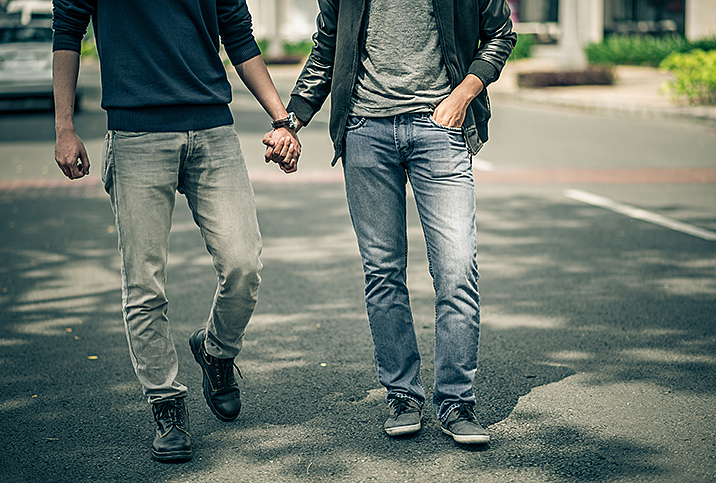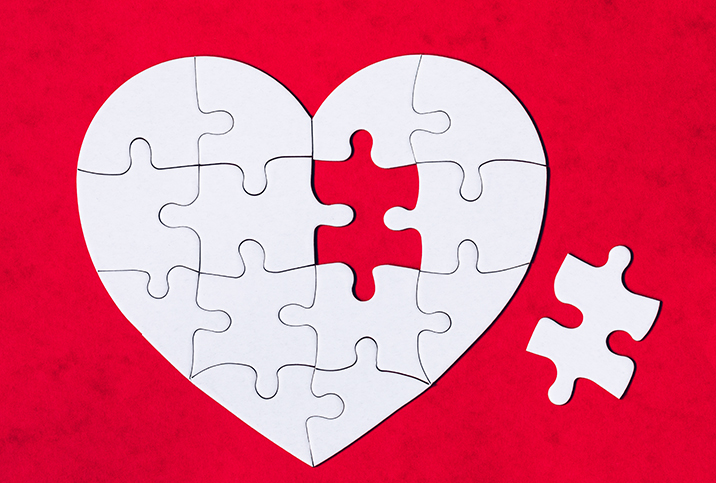Why We're All So Sick of Swiping

When I first caught wind of Tinder in 2014, I thought to myself, "perfect timing." I'd just found my first apartment in New York City and I was so ready to invite someone in. A dating app seemed really useful for navigating a new city, especially one so densely populated. With that many people in one place, how could anyone find a partner?
I wouldn't wonder for long. After two short weeks of swiping, I met a young filmmaker who swept me off my feet. Not even a month after we'd matched, we were a couple. I spent the next few years in a real-life rom-com, being wooed with Michelin-star dinners and adventures abroad. Our life together was so joyful and picturesque, we were certain a rep from Tinder would call any day to cast us in an ad campaign.
Our eventual split was amicable, in part, because we'd both ceded custody of our beloved New York City. He returned home to Calgary and I followed my parents to Atlanta, where they have since retired. Just like that, I was in a new city again. It wasn't long before I heard the siren song of "The Apps," as Tinder and its competitors were becoming known.
A different vibe
It was now 2018, and by then, dating apps had lost their luster and novelty, becoming yet another digital dead end that siphoned attention for profit. Advertisements and fake accounts proliferated, and abrasive behaviors such as "ghosting" and "zombieing" cropped up, creating a sense that users were swiping in search of an ego boost as opposed to an actual connection.
A term was eventually coined to capture this ambiguous malaise: "dating app fatigue." It's a state characterized by a multitude of "ailments," from the dissatisfaction that comes with endless skimming and swiping without results, to the frustration of matching with bigots or COVID-19 deniers. In fairness to the apps themselves, some of the angst occurs in the analog dating world, too.
Dating is hard
"[You're] asking and answering the same questions over and over again, and opening yourself up to judgment just to have it not work out," said Rachel Worthington, a Denmark-based sex and relationship expert with sex toy blog Bedbible.
Digitizing the process does add new stressors, she said.
"The difference with dating apps is that it gets exhausting so much earlier in the process," Worthington said. "There's so much effort involved in presenting yourself in the best possible light and selecting the right person that you're totally worn out by the time you actually start trying to form a connection."
It's important to remember the creators of these applications aren't die-hard romantics—they're capitalists. Most of the biggest dating apps, such as Tinder, OkCupid and Plenty of Fish, are owned by the tech conglomerate Match Group Inc. This also includes Hinge, whose dubious claim of being "designed to be deleted" cleverly frames the app as a magnanimous force of good.
Worthington isn't buying it.
"While it's a good testimonial for them to have people meet on their app and then stop using it, in the end, they make a profit by having you pay your monthly fee again and again," she explained.
The true aim is to keep you swiping. What's love got to do with it? Maybe not a whole lot.
Compatibility is king
Apps such as Tinder can cast a harsh light on your local dating pool, making the whole endeavor feel more daunting. When health journalist Elena Rivera moved to Dallas from Colorado Springs, Colorado, in 2021, she was already well-acquainted with dating apps such as Bumble and Hinge.
"I've tried them all at one point," Rivera said.
Using the apps in a city with a conservative political profile, in the middle of a global pandemic that had itself been politicized, proved "depressing" for Rivera, who encountered lots of anti-masking sentiment as she swiped.
"As a health reporter, especially one who just moved for a new job, I could not mess around with that," Rivera said.
Having endless options might seem nice. But when the local offerings don't suit you well or you're waiting for that one special someone, it can start to feel like looking for a needle in a haystack. This situation helps create the optimal conditions for dating app fatigue, which is why a new vanguard of apps has emerged, based on factors such as astrological signs and sexually transmitted infection (STI) status.
Finding the cure
It was easy for me to idealize dating apps on the heels of my wildly successful first attempt. Later on, when I couldn't replicate those initial results, I blamed the apps just as readily as I'd sung their praises. But both views were oversimplified.
Generally speaking, dating apps are what we make of them. Of course, they feel draining when we engage with them just like we do with social media and streaming sites: in a state of passive consumption.
But Worthington suggested intentionality and authenticity are keys to escaping this trap.
"It's OK to feel invested in other people and your connections, and you don't have to just go with the flow if that's not really what you want to do," Worthington said. "Take regular breaks and try to maintain a healthy amount of perspective on what dating apps are and what they offer."
It's likely the best approach to treating "dating app fatigue" isn't all that different from treating the physical kind: Rest, recover and build new habits.

















